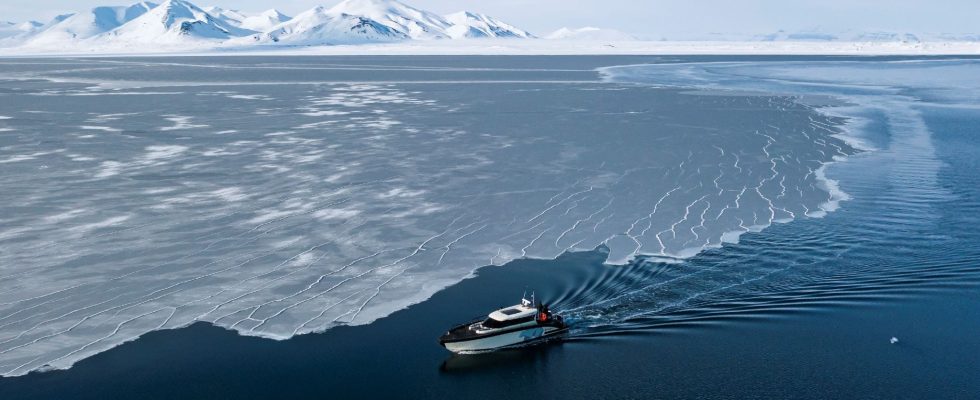Is Norway paving the way for an extremely controversial practice? While committed to the protection of the oceans and the high seas, the Scandinavian kingdom has just taken a first step towards the much criticized exploitation of minerals from the seabed. On Tuesday January 9, the Norwegian Parliament voted in favor of opening mining prospecting in a vast maritime region of the Arctic.
The subject, little known to the general public in recent years, has become hot as appetites grow for the vast resources lying in the deep sea. Around the North Pole, but also on the floor of the Pacific Ocean, cobalt, zinc or copper form metal deposits which lie over hundreds of thousands of square kilometers. Concentrated in the form of polymetallic nodules, sulphide deposits, or cobalt-rich crusts, they could help meet the world’s needs for critical metals for the transition, assure the supporters of exploitation. Norway, whose continental shelf slides to the Barents Sea and the Svalbard archipelago, is well endowed. The government has identified a vast area of 280,000 km², or half the surface area of France, which is full of these metals. According to an official estimate, the seabed could contain 45 million tonnes of zinc and 38 million tonnes of copper.
Scientists sound the alarm
“With this decision, Norway is sending a signal to the mining industry that a path to exploitation is possible,” notes Emma Wilson, political advisor to the NGO Deep Sea Conservation Coalition. A mixed signal, however, because Norway does not directly authorize exploitation, but simply grants exploration permits, under strict environmental conditions. “This decision comes in a context of very strong opposition from the international and national community, which explains this nuance in particular,” she judges. The possible exploitation of these same funds will have to be the subject of a new examination by Parliament. “Norway pays a lot of attention to its international reputation, and the parliamentary majority was careful not to appear as the first country to embark on this much-maligned activity,” adds Anne-Sophie Roux, representative in France. from the NGO Sustainable Ocean Alliance.
For several months, scientists and NGOs have been alarmed by Norwegian attempts. The exploitation of these metals in such a preserved marine environment could have disastrous ecological repercussions, they emphasize. They fear the destruction of habitats and species that are still unknown but potentially crucial to the food chain, or the disruption of the ocean’s capacity to absorb carbon. “It’s a shame because Norway risks creating a precedent” which will allow “other countries to do the same”, lamented shortly after the vote Frode Pleym, head of the Norwegian branch of Greenpeace. .
A mining code expected this year
On this aspect, doubt is allowed. If some are ready to launch exploitation, such as Japan or the United States, more and more countries prefer to turn away and favor the precautionary principle. In France, Emmanuel Macron has even spoken out in favor of a total ban on this practice. “There are several other countries following, but they do not want to be the first because of the image that this industry projects,” notes Anne-Sophie Roux.
Concerning the coveted areas but located outside the exclusive economic zones of States, a decision from the International Seabed Authority (IAFM) is eagerly awaited. The body must decide this year on a mining code regulating a possible authorization to exploit the mineral resources of a vast maritime expanse located in the north central Pacific. A regulation on which the Norwegian decision should not influence, say the specialists.
Prepare after oil
Faced with these findings, a question remains: why such haste on the part of the Norwegian government? In recent months, Norway has seemed to want to accelerate the extraction of these resources whose profitability, resulting from their operating cost, is still largely hypothetical. Even the national oil company, Equinor, declined the invitation to participate, pointing the finger at “the environmental risk” and recommending applying “the precautionary principle”.
With this new resource, the country, which often evokes its image as a haven of nature and large wild spaces, could make us forget that it is above all a rich oil state. And at a time of energy transition, these new underwater resources could prepare for the post-oil era by allowing the kingdom to become a major global producer of minerals. The risk now is above all to appear on the international scene as an actor acting in contradiction with its environmental commitments, and thus see its credibility sink.
.
